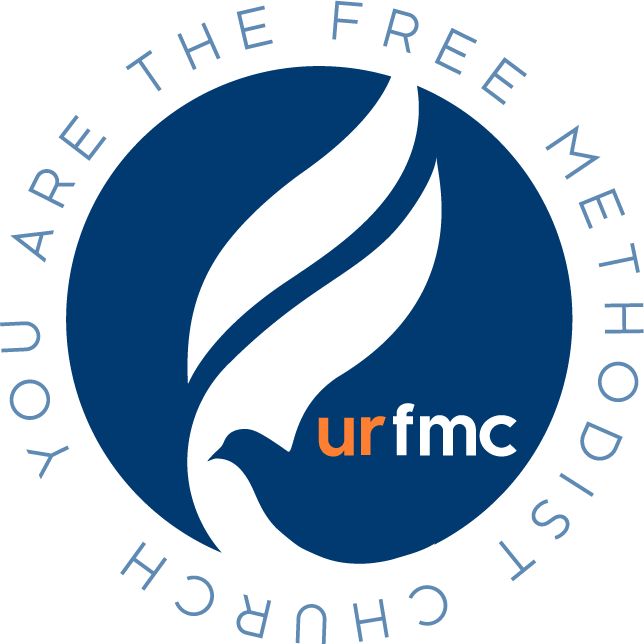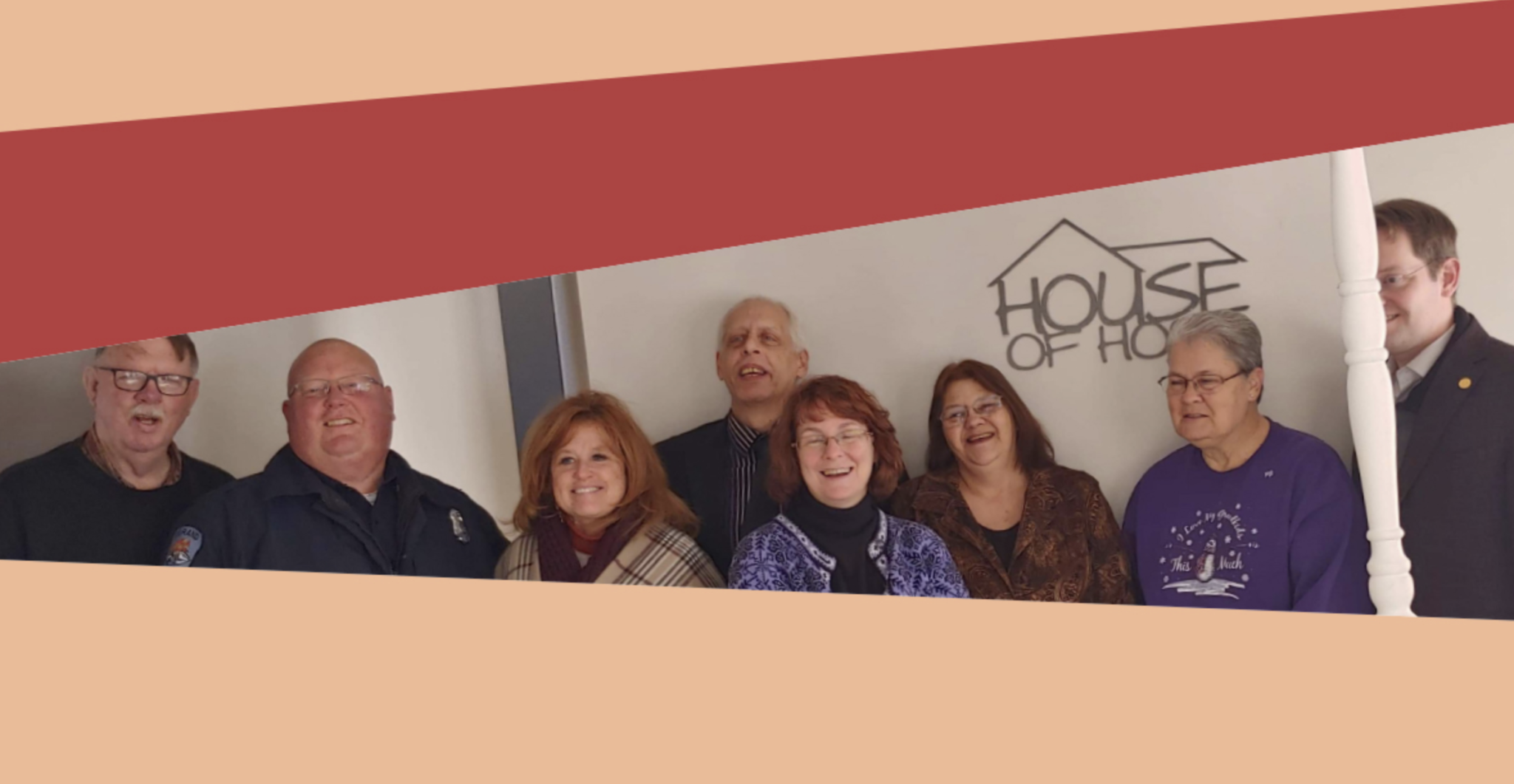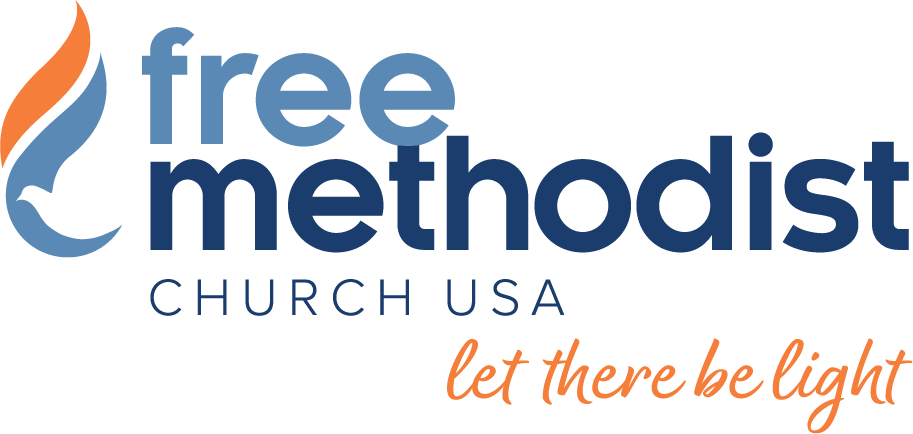A focus on prayer and love recently led the Crossing Free Methodist Church to turn its vacant parsonage into an emergency shelter for people facing homelessness in Shiawassee County, Michigan, and it didn’t take long for word to spread. The Crossing’s efforts to establish the House of Hope quickly attracted an award from a community group and extensive coverage from regional news media.
Church leaders weren’t seeking publicity, however. They were just trying to live out Matthew 22:35–40, Mark 12:28–34 and Luke 10:27.
“Our key scripture is the two commandments: love God and love your neighbors as yourself,” Pastor Lisa Lahring said. “That’s just our total foundation.”
Before the House of Hope even hosted its first resident, the Shiawassee County Homeless Coalition presented the shelter with its Building Hope award on Nov. 12. The award coincides with Homeless Awareness Month, and the coalition selected the House of Hope “in appreciation for supporting the community through recognition of need, assessment of situation, and building hope.” The award came as a surprise to members of the small but growing congregation in Durand, Michigan.
“I was kind of stunned because we weren’t even open yet,” Lahring said. “We’re humbled. We’re honored. We want to serve, but the main thing is just getting the word out that there is a need for homeless shelters. There is a need for prevention of homelessness.”
The Crossing went through the denomination’s Recalibrate process in 2018, and from January to April, Lahring’s sermons focused on prayer. Lahring said church members also went through a 20-day prayer reset while reading the book “Reset: 20 Ways to a Consistent Prayer Life” by Bob Sorge (who wrote the Connecting Points article in this issue), and, a few months later, the Crossing hosted Brett Heintzman of the National Prayer Ministry.
“I know prayer is the key absolutely to anything we do,” said Lahring, who also emphasized the decision to “take the church through confession and repentance.”
Members of the Crossing understand firsthand that homelessness isn’t just a problem in big cities. People also lose their housing in rural areas and small towns like Durand (population 3,400).
That was true for the Crossing’s John and Dena who previously received help from the church after John’s illness and job loss resulted in them losing their home. John and Dena have housing now, and John will help others who face homelessness by overseeing the House of Hope.
Lahring said the House of Hope is not a typical homeless shelter with many beds and multiple staff on-site. The house is a temporary emergency shelter.
“It’s like a rental home without us receiving rent,” Lahring said. “We’re not going to staff it, but we will be overseeing it.”
The House of Hope isn’t meant to be long-term housing for anyone.
“We want to make sure they are aiming toward permanent housing,” said Lahring, who added the House of Hope is for people who are actually homeless, not for a person or family wanting a nicer place to live. “We want to make sure we get somebody who needs the roof over their head.”
In recent years, the Free Methodist Church – USA has highlighted a strategic priority to “partner strong” through “mutually beneficial relationships” with “likeminded ministries.” The Crossing has done exactly that by developing a partnership with Light of Faith Fellowship, a nondenominational church in Durand that provides financial, spiritual and physical support to the House of Hope.
“Their church people have come over and helped volunteer in the house and getting it ready,” Lahring said.
Light of Faith Pastor Don White and his wife, Debbie, serve on the shelter’s committee and are available to provide counseling if needed. A social worker from the Crossing also is a key part of the House of Hope committee.
“We come together as the body of Christ. It’s not about me. It’s not about my overseer,” Lahring said. “It’s about all of us together, coming together to be able to help people through the love of Jesus Christ.”
The House of Hope is not just about keeping people out of the cold.
“Our vision is to help restore hope in the midst of the chaos of homelessness through the love of Jesus Christ,” said Lahring, who emphasized that people have physical, mental and spiritual needs. “It’s not just about housing but their whole self.”
Along with shelter, homeless people need transportation, food and clothing, and they also may need help with overcoming addiction, setting goals or learning how to create a budget.
Area newspapers have covered various stages of the House of Hope. The Argus-Press in Owosso, Michigan, provided indepth coverage with staff writer Sally York’s Nov. 29 article titled “Durand church members see shelter as ministry.”
Lahring received a call to ministry in the late 1990s. She became the Crossing’s associate pastor in 2009 while also working bivocationally as a nurse, and she transitioned to lead pastor in 2013. Because she already had a house, she didn’t need to reside in the parsonage, which made it available for the House of Hope.
One of the catalysts for opening the shelter was a ministry grant from the East Michigan Conference that helped fund the renovation of the parsonage. Lahring expressed appreciation for Superintendent Brad Button’s support.
The Crossing is increasingly becoming an intergenerational congregation with people of different ages doing ministry together. This past summer, the church hosted a community garden that was overseen by two congregants in their late 20s.
“They would take the produce that we would harvest and walk around town with it and drop it off to people,” said Lahring, who added that a couple of the produce recipients have since started attending the church.
“Even if you think you’re a small church, don’t count yourself out. Dale Woods [a Free Methodist pastor and missionary] said it best: ‘We don’t see problems. We see opportunities,’” Lahring said. “With God, it’s not impossible.”


